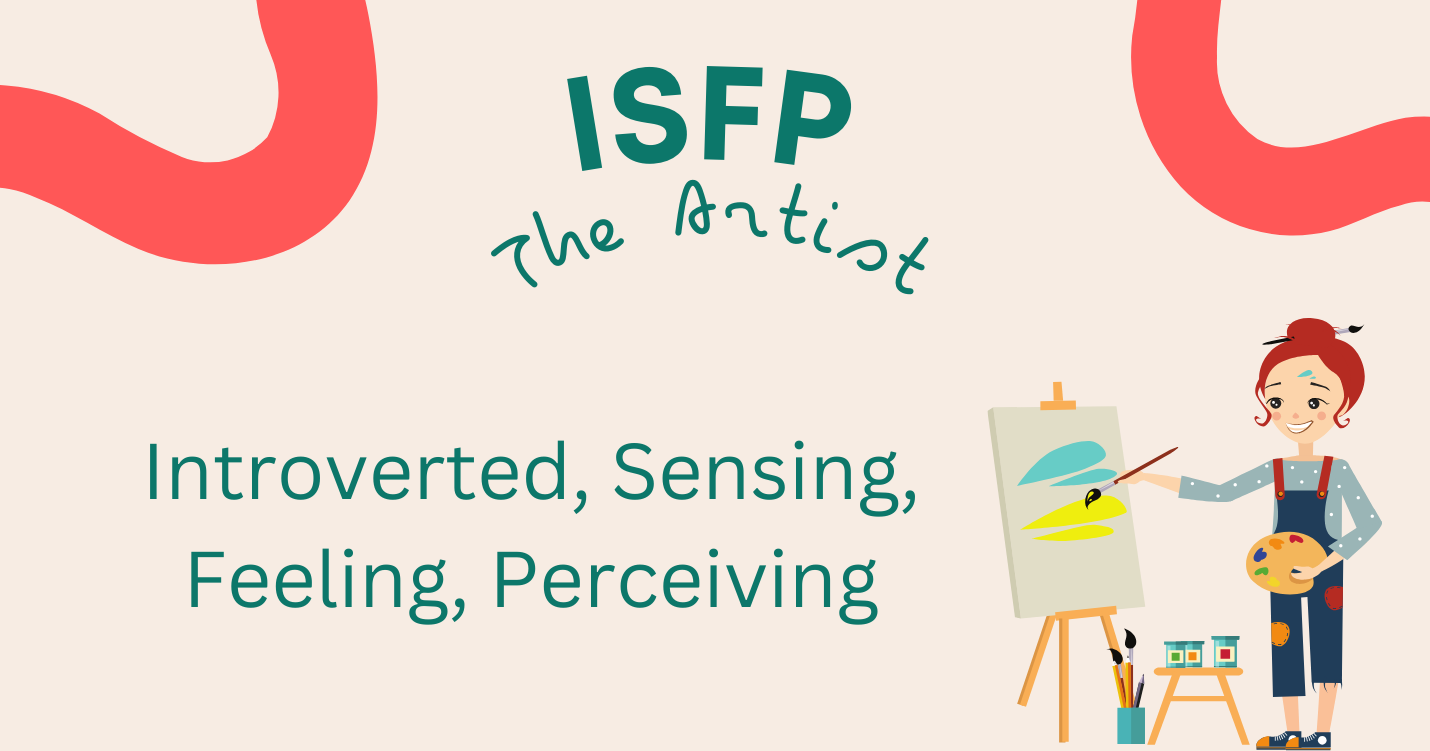

People with an ISFP personality—the Adventurers—have Introverted, Observant, Feeling, and Prospecting personality traits. Unlike extroverts, who gain energy from interacting with other people, introverts must expend energy around others
ISFP Strengths
- Observant. ISFPs are super-observant and seldom overlook any details.
- Bold and spontaneous. Craving fun and excitement as they do, ISFPs know that life is short and that we must seize the moment before it passes us by.
- Principled. ISFPs will not sacrifice their principles for anything, and they have little tolerance for cheaters, liars or hypocrites
- Individual. Some people spend their whole lives conforming to established standards and traditions.
ISFP Weaknesses
- Too sensitive. Kind and considerate ISFPs are so determined to keep the peace that they frequently suppress their unpleasant emotions or ignore their own needs.
- Indecisive and unpredictable. ISFPs are innovative, flexible and adaptable.
- Easily bored. ISFPs are doers who learn through direct experience and imitation.
- Lack of future planning. ISFPs don’t always perceive the full consequences of their actions, or understand how the present inevitably shapes the future.
ISFP Growth and Development
In order to reach their full potential, ISFPs should:
- Choose honesty over harmony.
- Develop a wider concept of what it means to be bold and adventurous.
- As Michael Jackson used to say, start with the man in the mirror. Their unselfishness and charitable attitude rank near the top of the list of their most attractive attributes
- Network with dreamers, visionaries and futurists.
- Actually make some plans for the future
The ISFP at Work
ISFPs typically enjoy hands-on activities, and often gain satisfaction when they can create a tangible result from their efforts. An ideal job for an ISFP allows them to clearly observe the fruits of their labor, in a context that feels significant and consistent with their values. ISFPs like a courteous, cooperative work environment where they can work quietly, with support when they need it. Because ISFPs are so tuned to their physical surroundings, it’s often important to them that their work environment is aesthetically pleasing. ISFPs generally prefer to keep a low profile and do not usually like to be in positions that require them to speak publicly or lead large groups
ISFPs in Love
In relationships, the ISFP is loyal, patient, and easygoing. ISFPs are eager to help and quickly perceive the needs of their partners and families. They often show affection with simple, practical gestures that make their loved ones feel comfortable and well taken care of. ISFPs like to maintain harmony and are very reluctant to engage in conflict. They may have difficulty asserting themselves and struggle with expressing feelings of anger or resentment. Ideally, they want to be cooperative and accommodate others, and may find themselves taken advantage of if their partners are not sensitive to their needs. ISFPs are tolerant and uncritical, and adapt easily to their surroundings. They like to go with the flow and enjoy life from moment to moment. An ideal mate for an ISFP takes the time to show spontaneous gestures of affection, and appreciates the ISFP’s kind and helpful nature.
ISFPs as Parents
As parents, ISFPs are warm and sensitive, and take joy in creating comfort and stability in their homes. ISFPs are attentive to their children’s practical needs and step in quickly and gracefully to provide for them. They often enjoy caring for children, but can sometimes become overworked and exhausted because of their natural impulse to help. ISFP parents often seem calm and unflappable. ISFPs are private people and can be reserved or remote, so their children may not always grasp the depth of the ISFP parent’s devotion to family. Although it is not often conspicuous, ISFPs have a deep loyalty to their loved ones. They value their intimate connections above all else and are tremendously dedicated to the care of their children.
ISFP Communication Style
ISFPs are gentle, accepting communicators who tend to follow the flow of conversation and look for opportunities to contribute with factual information or practical help. They are easygoing and supportive; they don’t want to be in control or attract attention, and are often attentive listeners. Considerate and accepting, the ISFP often looks for common ground with others. ISFPs shy away from conflict or criticism, preferring harmonious, spontaneous interactions that allow them to be helpful and kind.


